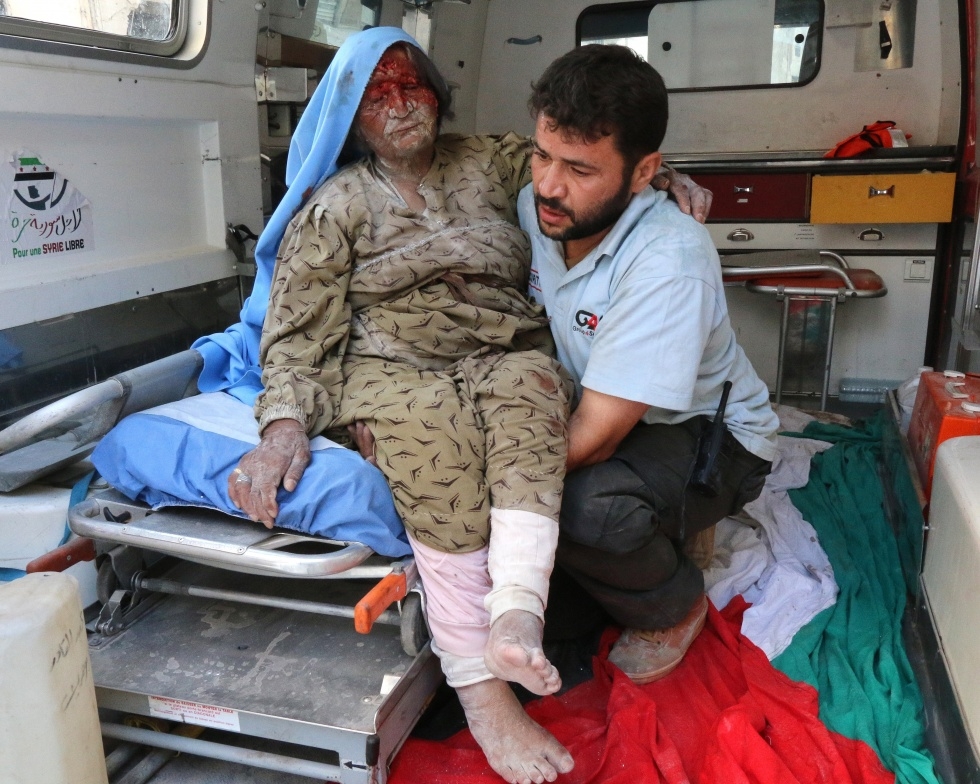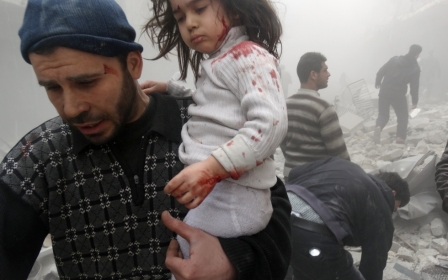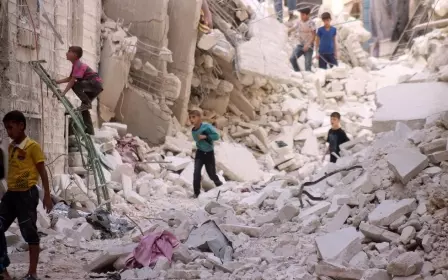Syria's Assad responsible for majority of civilian casualties: UN official

The head of the United Nations commission on Syrian war crimes on Tuesday said that the government of Bashar al-Assad takes the lion's share of responsibility in terms of the deaths of civilians in the country.
"The Syrian government remains responsible for the majority of the civilian casualties," said Paulo Pinheiro, the head of the Commission of Inquiry on Syria, at UN Human Rights Council in Geneva.
He blamed the UN Security Council's inaction on Syria for the worsening of the crisis.
"We have been faced with inaction. This inaction has allowed the warring parties to operate with impunity and nourished the violence that has consumed Syria. Its most recent beneficiary is ISIL," he said, in a reference to Islamic State (IS) militants.
Pinheiro said the commission had asked the UN Security Council to refer the situation in Syria to the International Criminal Court.
"Once again, I am left with no choice but to describe a war which worsens every day. I have run out of words to depict the gravity of the crimes committed inside Syria."
"I cannot bring myself to repeat the statistics of this war. I no longer have faith that enumerating the thousands of dead and displaced will provoke you to act. Read instead the stories of the victims."
Pinheiro urged preventing civilian casualties in the fighting against IS militants.
"As military action on ISIL positions seems increasingly likely, we remind all parties that they must abide by the laws of war and most particularly, the principles of distinction and proportionality. Serious efforts must be made to preserve civilian life," he said.
World's 'worst humanitarian crisis'
His comments came as the United Nations High Commissioner for Refugees Antonio Guterres on described Syria's civil war had led to the world's "worst humanitarian crisis", during a visit to a camp for Syrian refugees in eastern Lebanon.
Around 1.2 million Syrians – fleeing the civil war in their country – have sought refuge in Lebanon, according to the UNHCR.
The agency went on to predict that the number of Syrian refugees in Lebanon would hit 1.5 million by the end of the year.
Meanwhile, Ninette Kelley, UNHCR representative in Lebanon said the presence of large numbers of Syrian refugees on the border between Lebanon and Syria could turn these areas into "another Arsal,"
Arsal, an eastern Lebanon town on the border with Syria, made headlines early last month when fierce fighting broke out between Lebanese troops and two militant groups, in a spill over from the war in Syria.
The solution to the influx of Syrian refugees could only be found in Syria itself, she asserted, calling for a halt to what she described as aggression in Syria.
The UN official noted that the international community should first focus on halting aggression in Lebanon's war-torn neighbour.
There never would have been a refugee influx, she said, if there had not been an internal conflict in Syria.
Separately, Turkey's Prime Minister Ahmet Davutoglu, whose country hosts up to one million Syrian refugees, said that "the Assad regime has paved the way for radicalization. The international community did not display sufficient solidarity to end these massacres."
New MEE newsletter: Jerusalem Dispatch
Sign up to get the latest insights and analysis on Israel-Palestine, alongside Turkey Unpacked and other MEE newsletters
Middle East Eye delivers independent and unrivalled coverage and analysis of the Middle East, North Africa and beyond. To learn more about republishing this content and the associated fees, please fill out this form. More about MEE can be found here.




